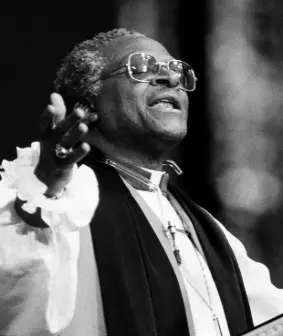What is Ubuntu?
Ubuntu is the belief that one's humanity is inextricably linked to that of others. It emphasises interconnectedness, mutual respect, and care, where the well-being of the community enhances individual well-being.
By embracing solidarity, empathy, and collaboration, Ubuntu promotes harmony and collective growth for everyone. Deeply human-centred, Ubuntu is based on the idea of interdependence among living beings. It simultaneously signifies relational goodwill, an ethic of care, and a way to experience humanity.
Origin
Ubuntu is an ethical or humanistic philosophy from the southern part of Africa that revolves around commitment in giving and taking, sharing in groups, tribal members, and fostering more peace between tribes. Ubuntu finds its roots in the Bantu languages of southern Africa, particularly in the Nguni language spectrum (Zulu, Xhosa, Ndebele). The word comes from the expression “Umuntu ngumuntu ngabantu,” literally: “A person is a person through other people.” Loosely translated, it means I am because we are or Humanity towards others. A commonly used definition of Ubuntu is The belief in a universally shared bond that connects all humanity.
Even in pre-colonial societies, it served as a moral compass: those who were generous, hospitable, and caring deserved dignity in the community. Colonisation and the later apartheid period suppressed many indigenous values, but the idea of Ubuntu continued to live on in oral traditions and sayings.
In the 1950s to 70s, African thinkers such as Jordan Kush Ngubane and Steve Biko embraced Ubuntu as the foundation for their own, non-Western view of humanity. During the anti-apartheid struggle, leaders like Nelson Mandela and especially Desmond Tutu used the term to promote forgiveness and reconciliation.
After 1994, Ubuntu took on a prominent role in the South African Truth and Reconciliation Commission as an ethical framework for restorative justice. The concept then spread in the international peace and development sector, where it symbolises solidarity and social cohesion.
Academics linked Ubuntu to African humanism, while entrepreneurs and politicians used it to outline inclusive leadership cultures. Thus, Ubuntu evolved from a local way of life to a globally recognised philosophy that emphasises that personal growth is only possible in connection with others.
Ubuntu according to others
There is no unique definition that describes Ubuntu, but it revolves around one thing: Humanity. Nelson Mandela himself provided a definition of Ubuntu: "Respect, helpfulness, sharing, community, generosity, trust, selflessness. One word can mean so much. That is the spirit of Ubuntu."
The Nobel Peace Prize winner of 1984, Archbishop Desmond Tutu, said it
like this:
“Someone who has Ubuntu is open and available to others, dedicates themselves to others, does not feel threatened by the abilities of others because he or she draws enough self-confidence from the knowledge that he or she is part of a larger whole. He feels hurt when others are hurt or humiliated, when others are tortured or oppressed.”
